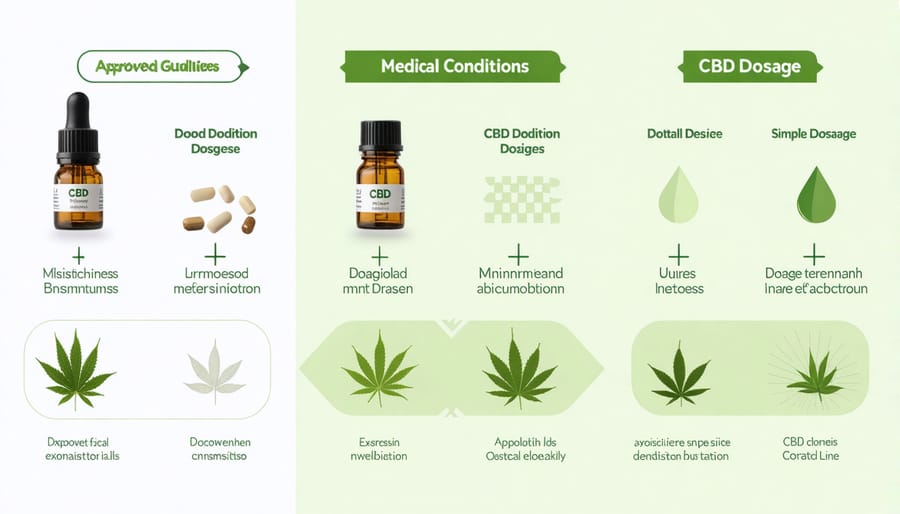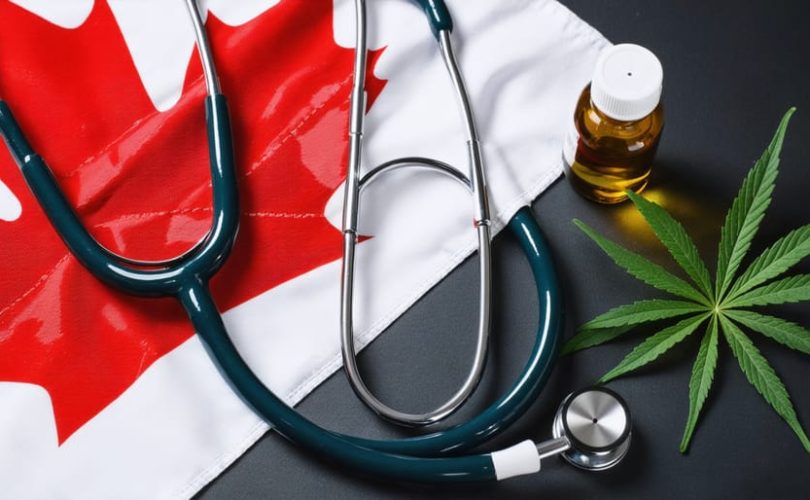Navigate CBD prescribing in the Canadian healthcare system as an International Medical Graduate (IMG) by mastering province-specific regulations and obtaining necessary certifications. Recent studies show that CBDNorth products in Canada are increasingly integrated into treatment protocols, particularly for chronic pain and anxiety management. IMGs entering Canadian medical practice must understand both federal cannabis regulations and provincial licensing requirements while adapting to evidence-based CBD prescription practices. This dual expertise in regulatory compliance and clinical applications positions international physicians uniquely within Canada’s evolving medical cannabis landscape, where patient demand for CBD treatments has grown 40% annually since 2018. Healthcare providers with international experience bring valuable perspectives to CBD therapy, enhancing treatment diversity while maintaining Canadian medical standards.

Legal Framework for CBD Prescription in Canada
Federal vs Provincial Regulations
While the federal Cannabis Act establishes the fundamental cannabis regulations for medical practice, each province maintains distinct oversight of CBD prescriptions. In Ontario and British Columbia, physicians have more flexibility in prescribing CBD, requiring only standard documentation. However, Quebec implements stricter controls, mandating additional reporting and specific qualifying conditions.
Alberta and Manitoba require physicians to complete supplementary CBD-specific training before prescribing, while Saskatchewan follows federal guidelines with minimal provincial additions. Atlantic provinces share similar frameworks but differ in dosage limitations and follow-up requirements.
For IMGs, understanding these provincial variations is crucial for successful practice integration. Most provinces offer orientation programs specifically designed to help international practitioners navigate local CBD regulations. Regular updates to these guidelines occur through provincial medical colleges, and mentorship programs often pair experienced Canadian physicians with IMGs to provide practical guidance on regional prescription practices.
Required Certifications and Training
To prescribe CBD in Canada, IMGs must first complete the standard medical licensing requirements through their provincial medical regulatory authority. Additionally, healthcare practitioners need to complete specific training modules focused on cannabis therapeutics and CBD prescribing protocols. The College of Family Physicians of Canada (CFPC) offers a comprehensive Cannabis Education Program, which is strongly recommended for all practitioners.
Key certification requirements include completing the mandatory “Prescribing Cannabis for Medical Purposes” course and maintaining updated knowledge through annual continuing medical education credits specific to cannabinoid medicine. IMGs should also familiarize themselves with Health Canada’s guidelines for cannabis prescription and the provincial regulations governing CBD use in medical practice.
Many hospitals and healthcare institutions offer in-house training programs that cover local protocols and documentation requirements. These programs typically include mentorship opportunities where experienced practitioners guide IMGs through their first CBD prescriptions. Some institutions may require additional certification in pain management or specific therapeutic areas where CBD is commonly prescribed.
It’s important to note that certification requirements may vary by province and healthcare setting. IMGs are encouraged to consult their provincial medical college for the most current requirements.
Clinical Applications and Guidelines
Approved Medical Conditions
In Canada, healthcare practitioners, including IMGs, can prescribe CBD products for specific medical conditions that have been approved by Health Canada. The primary approved indication is for managing spasticity and neuropathic pain in multiple sclerosis. Additionally, CBD-containing medications are authorized for treating severe forms of epilepsy, particularly in pediatric patients with Dravet syndrome and Lennox-Gastaut syndrome.
Cancer-related symptoms, including chemotherapy-induced nausea and vomiting, chronic pain, and appetite stimulation, are also recognized conditions for CBD prescription. For patients with HIV/AIDS, CBD may be prescribed to manage associated symptoms such as wasting syndrome and chronic pain.
While not explicitly approved, healthcare providers may exercise clinical judgment in prescribing CBD for other conditions through the Special Access Programme. These may include chronic non-cancer pain, anxiety disorders, and PTSD, provided there is sufficient evidence supporting its use and conventional treatments have proven ineffective.
It’s essential for IMGs to familiarize themselves with provincial guidelines and college policies regarding CBD prescription, as requirements may vary across different jurisdictions. Regular updates to these approved conditions occur as new research emerges, making it crucial for practitioners to stay informed through continuing medical education programs and professional development activities.

Dosage and Administration Protocols
In Canada, CBD dosing protocols typically follow a “start low, go slow” approach, which is particularly important for IMGs to understand when integrating into the Canadian healthcare system. Initial dosing usually begins with 5-10mg of CBD twice daily, with gradual increases based on patient response and condition severity.
For chronic pain management, the standard protocol suggests incremental increases of 5mg every 2-3 days until reaching optimal therapeutic effect. Anxiety and sleep disorders may require different dosing schedules, typically ranging from 25-75mg daily, divided into multiple doses.
Patient monitoring is essential and should occur at 2-week intervals during the initial treatment phase. IMGs should document vital signs, symptom changes, and any adverse effects in the patient’s electronic health record. Regular assessment of liver function is recommended for patients on long-term CBD therapy, particularly when daily doses exceed 50mg.
Special considerations apply for elderly patients and those with multiple medications. Start with 50% of the standard initial dose for seniors and carefully monitor for drug interactions. Pregnant and nursing patients should avoid CBD use unless benefits clearly outweigh risks.
Documentation requirements include detailed treatment plans, informed consent, and regular progress notes. IMGs should familiarize themselves with provincial guidelines and specific institutional protocols, as these may vary across different healthcare settings in Canada.
Professional Considerations for IMGs
Cultural Competency
Understanding Canadian attitudes towards CBD treatment requires cultural sensitivity and awareness, particularly when integrating IMGs into Canadian healthcare. Canadians generally maintain an open-minded approach to CBD-based treatments, supported by the country’s progressive cannabis legislation and evidence-based medical practices.
Many Canadian patients are well-informed about CBD treatments and may actively seek information about these options. As an IMG, it’s important to recognize that patients often expect collaborative decision-making in their treatment plans. This participatory approach reflects Canadian healthcare values of patient autonomy and shared responsibility.
Regional variations exist in CBD acceptance, with urban centers typically showing greater openness to alternative treatments compared to rural areas. Understanding these nuances helps practitioners provide culturally appropriate care. Additionally, Canadian healthcare emphasizes evidence-based practice while respecting traditional and complementary medicine approaches.
When discussing CBD treatments with patients, maintain a balanced approach that acknowledges both scientific evidence and patient preferences. This cultural competency demonstrates professional integration and helps build trust with Canadian patients, who value healthcare providers who understand and respect their perspectives on alternative treatments.

Documentation Requirements
In Canada, proper documentation of CBD prescriptions is essential for maintaining professional standards and ensuring patient safety. As an IMG, you must maintain detailed patient records that include the initial assessment, treatment rationale, informed consent, and ongoing monitoring of CBD therapy. Each prescription requires documentation of the specific CBD product, dosage, administration route, and intended duration of treatment.
Keep a comprehensive record of patient responses, including both therapeutic effects and any adverse reactions. Regular follow-up appointments should be documented, noting any adjustments to the treatment plan. These records must be maintained in accordance with provincial regulatory requirements and your healthcare facility’s policies.
For quality assurance and research purposes, you may need to participate in CBD prescription monitoring programs. This includes reporting adverse events to Health Canada through the Canada Vigilance Program. Many healthcare facilities have implemented electronic medical record systems with specific templates for CBD prescriptions, making documentation more streamlined and standardized.
Remember to document patient education provided, including usage instructions, potential risks, and harm reduction strategies. This documentation not only ensures legal compliance but also facilitates better communication with other healthcare providers involved in the patient’s care.
Resources and Support
International medical graduates can access numerous resources to help navigate CBD prescription practices in the Canadian healthcare system. The Royal College of Physicians and Surgeons of Canada offers comprehensive online modules specifically designed for IMGs, covering CBD regulations, prescription guidelines, and clinical applications.
The Canadian Medical Protective Association (CMPA) provides essential medico-legal guidance and support for physicians prescribing CBD. Their resources include case studies, documentation templates, and best practice guidelines tailored to the Canadian context.
Provincial medical regulatory authorities maintain dedicated IMG support offices that offer personalized guidance on CBD prescription protocols. These offices frequently organize workshops and training sessions to help IMGs understand local regulations and requirements.
Several IMG networks and professional associations across Canada facilitate mentorship programs, connecting experienced physicians with newcomers. These relationships provide invaluable practical insights into CBD prescription practices and patient management strategies.
The Health Canada website features a dedicated section for healthcare practitioners, offering up-to-date information on CBD regulations, research, and clinical evidence. They also provide multilingual resources to support IMGs from diverse backgrounds.
For hands-on experience, many teaching hospitals offer shadowing opportunities and clinical observerships where IMGs can learn about CBD prescription practices under supervision. Additionally, provincial IMG associations regularly host webinars and continuing medical education sessions focusing on cannabis-based treatments in Canadian healthcare.
The journey of integrating CBD prescription practices into Canadian healthcare as an IMG requires dedication, continuous learning, and adaptability. Success stories from IMGs who have successfully navigated this path demonstrate that with proper preparation and understanding of both regulatory requirements and cultural nuances, international medical graduates can thrive in the Canadian healthcare system. Take advantage of mentorship programs, stay updated with CBD guidelines, and actively participate in professional development opportunities. Remember that your unique international perspective adds value to the Canadian healthcare landscape. By following the outlined steps, maintaining compliance with regulatory bodies, and embracing ongoing education, you can build a rewarding career while contributing to patient care through evidence-based CBD prescribing practices. The future of CBD in Canadian healthcare is evolving, and IMGs play a vital role in shaping this emerging field.







